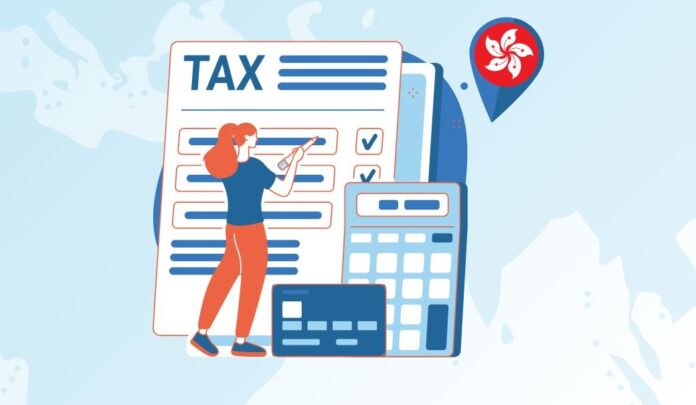The digital nomad lifestyle, a phenomenon characterized by remote work and travel, continues to grow in popularity. As the world becomes increasingly interconnected, more individuals are seizing the opportunity to blend their professional and travel aspirations. However, with this unique lifestyle comes the need to navigate the complexities of the US tax system. For digital nomads in 2024, understanding these nuances is crucial to ensure compliance and optimize tax benefits.
Knowing Your Tax Status

Key to understanding your financial obligations as a digital nomad is your tax residency status. The United States taxes its citizens and residents on their worldwide income, regardless of where they live or earn their income. This includes earnings from employment, freelancing, investments, and other streams of income. If you are a US citizen or resident, it’s crucial to grasp that you must file a tax return if your income exceeds certain thresholds, which can vary depending on factors such as your filing status and age. In this context, it’s pertinent to introduce a key term, TheNomadTax, which signifies the financial responsibilities unique to the digital nomad lifestyle.
Foreign Earned Income Exclusion (FEIE)
One significant provision for digital nomads is the Foreign Earned Income Exclusion (FEIE). This allows qualifying individuals to exclude a certain amount of their foreign earnings from US taxes. To qualify, you must pass either the Physical Presence Test, showing you’ve been in a foreign country or countries for at least 330 full days within a 12-month period, or the Bona Fide Residence Test, proving you’re a bona fide resident of a foreign country for an uninterrupted period that includes an entire tax year.
Self-Employment Considerations

Many digital nomads operate as self-employed individuals. This status brings additional tax responsibilities, including paying self-employment tax, which covers Social Security and Medicare taxes. While the FEIE can exclude income tax on foreign earnings, it does not apply to self-employment tax. Therefore, understanding and planning for these additional taxes is vital for self-employed nomads.
State Taxes and Domicile Issues
Even when living abroad, you may still have obligations to a US state. Many states tax their residents’ worldwide income, similar to the federal government. Your domicile, or your permanent home, plays a key role in determining your state tax obligations. Some digital nomads choose to establish their domicile in a state with no income tax to mitigate this issue.
Retirement Savings and Investments
Digital nomads should also consider the impact of their lifestyle on retirement savings and investments. Options like IRAs and Roth IRAs are available, but they come with specific rules and limitations, especially concerning income limits and contributions. For those with foreign bank accounts or assets, reporting requirements under the Foreign Bank and Financial Accounts (FBAR) and the Foreign Account Tax Compliance Act (FATCA) must be observed to avoid penalties.
Health Insurance and Tax Implications
Health insurance is a critical consideration for digital nomads, with tax implications. The Affordable Care Act mandates health insurance for US residents, but living abroad can affect your obligations. Understanding the interplay between your health insurance status and tax obligations is essential to avoid penalties and ensure adequate coverage.
Advanced Tax Planning Strategies

Advanced tax planning can yield significant benefits for digital nomads. Strategies like foreign tax credits, housing exclusions, and deductions for business expenses can reduce your tax liability. Working with a tax professional who understands the digital nomad lifestyle can provide tailored advice and ensure you take advantage of all available tax benefits.
Navigating Tax Treaties and Double Taxation
The US has tax treaties with numerous countries, which can affect digital nomads. These treaties often include provisions to avoid double taxation on the same income. Understanding the specifics of these treaties and how they apply to your situation is crucial to avoid paying unnecessary taxes.
Technology and Tax Management
In today’s digital age, technology offers robust solutions for managing taxes. Numerous software and apps are available to help track expenses, income, and tax obligations. Digital nomads can leverage these tools to streamline their tax preparation and ensure accuracy in their filings.
Regular Check-ins and Updates
Remaining compliant with US tax laws requires regular engagement with the evolving tax landscape. Digital nomads should periodically review their tax status, especially when there are significant life changes, such as changes in income sources, country of residence, or family status. Staying updated with the latest tax laws and regulations, both in the US and in countries of residence, is crucial. This ensures that you’re not only compliant but also taking advantage of any new tax benefits or navigating around newly introduced complexities.
Managing Currency Fluctuations
Digital nomads often earn and spend in different currencies, which introduces an additional layer of complexity to tax calculations. Income must be reported in US dollars on your tax return, requiring conversion from foreign currencies. It’s important to use the official yearly average exchange rate published by the IRS for this purpose. Currency fluctuations can significantly impact your taxable income, and understanding this can help in planning and managing your finances more effectively.
Record-Keeping and Documentation
Impeccable record-keeping is a non-negotiable aspect of tax compliance for digital nomads. This includes maintaining detailed records of income, expenses, days spent in each country, tax payments, and any other relevant financial transactions. Digital tools and cloud storage can be invaluable for organizing and securely storing these records. In case of an audit, having well-organized records can make the process smoother and less stressful.
Legal Structures and Business Entities
For digital nomads running their own businesses, considering the most advantageous legal structure is important. Options like LLCs, S-Corps, or sole proprietorships each have distinct tax implications. The choice depends on various factors, including the nature of your business, income levels, and long-term goals. Consulting with a tax professional experienced in international tax law and familiar with the digital nomad lifestyle is advisable for making informed decisions about business structures.
Summary
The digital nomad lifestyle offers an exciting blend of freedom, adventure, and opportunity. By understanding and effectively managing your US tax obligations, you can embrace this lifestyle with confidence. Whether it’s leveraging tax exclusions, optimizing your business structure, or staying on top of record-keeping, each aspect plays a vital role in your overall tax strategy.









